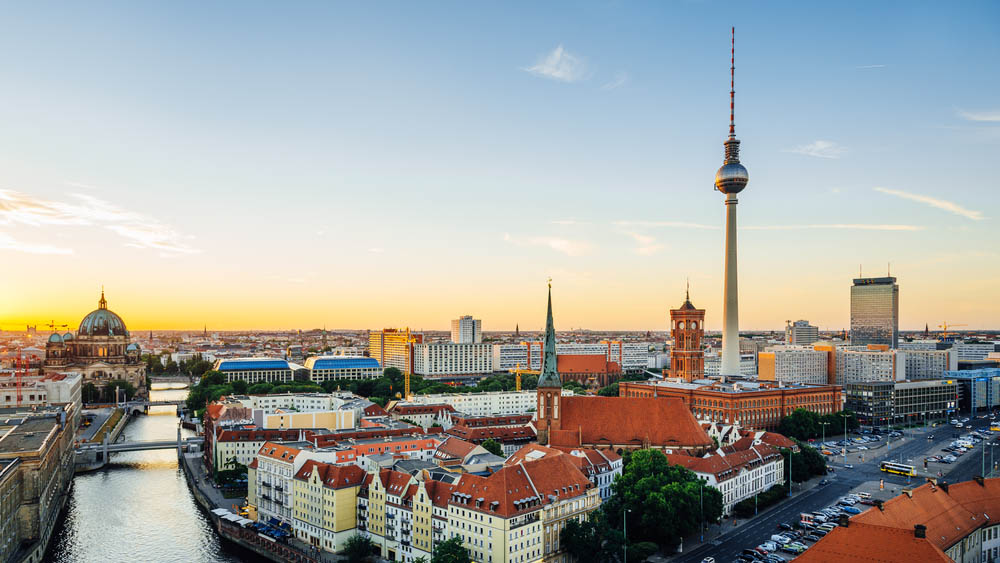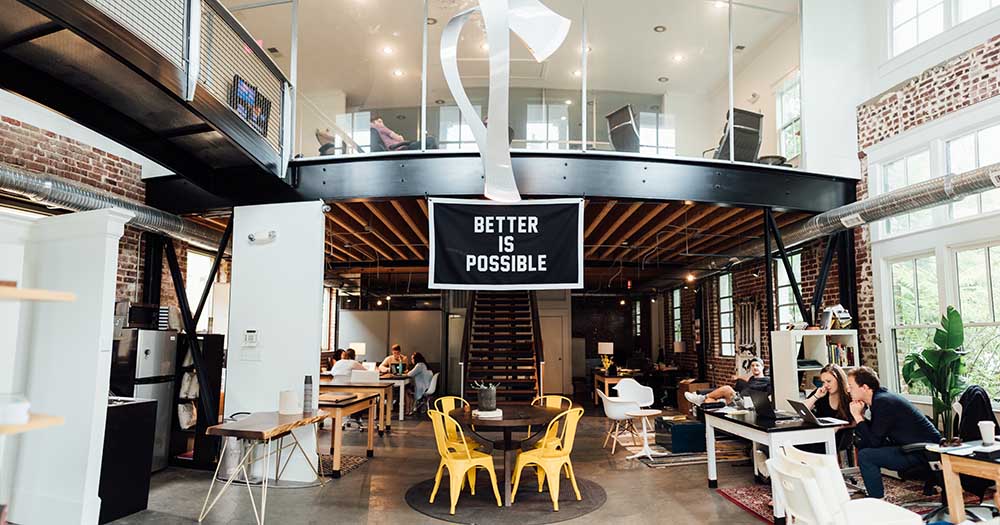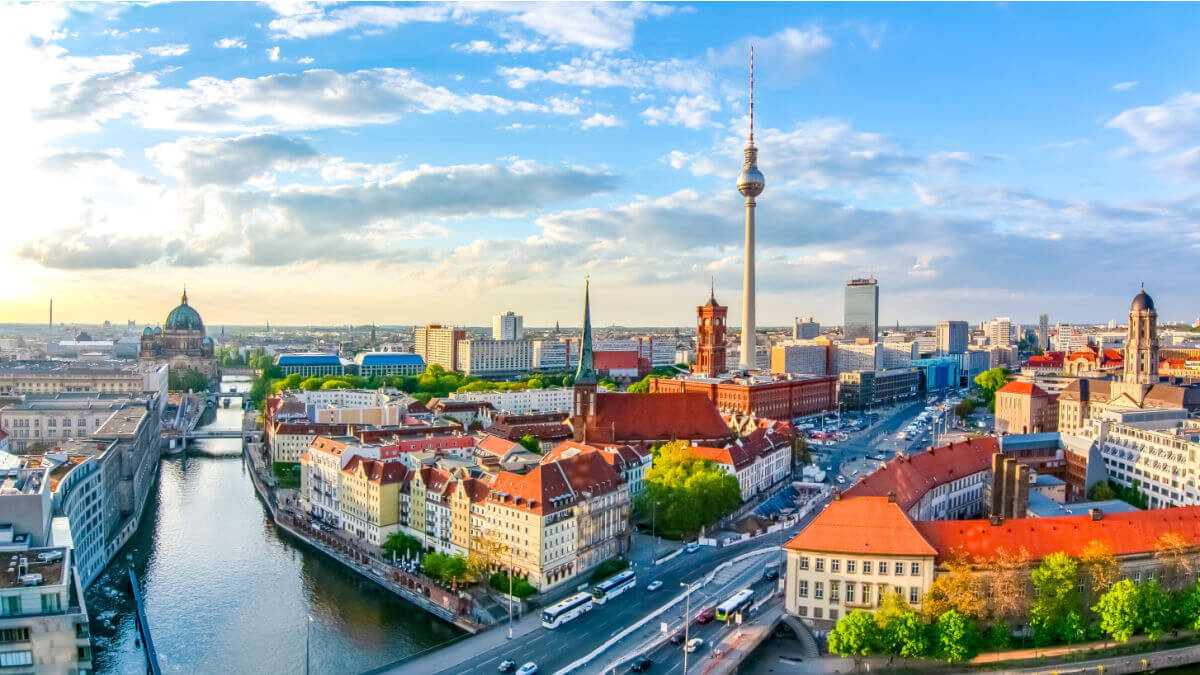How to transfer UK pension to Germany
Read our helpful guide on how to transfer a UK pension to Germany, including the steps, fees and taxes involved.

If you hadn’t heard, the ‘future of work’ is a hot topic. More and more people are asking the question: “Do I really need to work in a restricted office environment to be productive?”
And the answer is quite simply, NO.
‘Remote work’ is when someone (full-time or contract) works in their own chosen location: from home, a coworking space or at cafe, instead of a traditional office. Freelancers, contractors and startup teams often ‘work remotely’. Freelancers may work as part of a remote team, in which they can set their own hours and have flexibility to travel while they work.
People of all ages are now seeing this as an acceptable career step to take. It’s not just millennials ‘taking the leap’ anymore. With a host of tools now available to make this transition easier, deciding to move to another country and work remotely has become attractive to creative types seeking a better work/life balance and greater control over their time. But how does one take such a leap? We decided to ask someone who has chosen this path to find out more.
I am a digital communications specialist and consultant, from Australia.
I moved to Berlin two years ago to launch my freelance business and embrace the remote work lifestyle I'd dreamed of.
I help startups and creative businesses revamp their business online, create meaningful content and grow their community authentically. I work with clients all over the world, as either part of a remote team or as a contractor for short-term projects, as well as work on my own side projects (with one to be launched in 2017).
Even if I work with local startups, I usually still work as part of a remote team, and only meet in person when necessary. I prefer to work remotely and use tools such as Slack, Asana, Trello, Evernote and Google Drive for day-to-day activities. I host a monthly coworking event, Freelance Friday, for freelancers, entrepreneurs and indie (independent) workers in Berlin. I also regularly speak at meetups on social media (such as the recent Music Suit Up) or run workshops privately.
I also write blog posts for CloudPeeps and on Medium.
I use the flexibility of this lifestyle to travel when possible and connect with clients, connections and friends around the world. Berlin is a great city to launch your freelance career from and to use as your base -- thanks to the Berlin Freelance Visa, its affordability, its startup and creative communities, and its proximity to rest of Europe/UK. It’s definitely becoming a hotspot and for good reason!
Prior to moving to Berlin, I had been working in a corporate-style role within a digital communications team. I had been trying to tick off that ‘life checklist’ we’re supposed to do, yet I was often involved in other more interesting side projects. I wasn't satisfied with this 9-to-5 routine and felt there was something more out there for me.
After meeting the founder of The Fetch, Kate Kendall, I became the Melbourne city curator as a side hustle to my day job, opening my eyes to the world of entrepreneurs, startups and freelancers. I started to see that there was way more to life than the day-to-day grind and that we could all work far more efficiently, push ourselves to grow more and that it was possible to support each other better (minus the office politics).
The tipping point came a couple of years later, when I decided to finally take the leap -- I quit my job, sold everything, booked flights to Europe and bought tickets to a conference in Amsterdam I wanted to go to. In less than six weeks, I was off on a whole new chapter, seeking adventure and an exciting new life abroad.
After travelling for several months decided to land in Berlin, because of the Berlin freelance visa and because I also had some Aussie friends living here. The rest, as they say, is history!

Making the move overseas to work remotely was a big step to take and it’s been extremely rewarding on many levels.
My perception of what “work” means has changed and my productivity levels have increased dramatically. It stems from having the breathing space to control my day. Working with like-minded people with a desire to push their businesses forward in an authentic and open way really helps.
Gone are the days of long (often pointless) meetings, numerous emails everyday (with too many people cc’d in), and poor file management. I love the ‘lean and agile’ approach of startups and am constantly looking at ways I can work smarter and more efficiently.
Although I’ve lived overseas before (in Japan), moving to a new country is always exciting and challenging. Learning a new culture, language and having the opportunity to meet the ever-growing community of fellow freelancers, solopreneurs and startup folks is amazing and enriching every day (still two years in).
What I love about the startup, remote work and freelancing communities is their desire to continually grow and learn. Everyone encourages each other to be the best they can be, to take ownership of your own growth and to aim high in all you do. I never felt this before in traditional workplaces. Although I work often alone I feel more supported than ever before to achieve my goals, work smarter and continually produce my best work. I also want to pay that forward where I can, especially to anyone new to freelancing.
Moving overseas to work remotely is not for everyone. You need to embrace uncertainty, be comfortable with being uncomfortable (especially at the beginning), and depending on what your past work experience has been, you may have to rethink your whole working style and view on yourself (and your place in the world).
But I always think -- why wouldn’t you want to push yourself to become a better ‘you’?

I’m often asked where I find my work leads and clients. I find them through various sources: online freelance marketplaces and websites, online communities (in Slack), via local and global connections, and occasionally through cold-contacting companies I feel need my assistance. I’m also often contacted via my website directly.
There are many sites popping up nowadays for job opportunities, too many to list here, but one main one I use is CloudPeeps.com (which also has a fantastically supportive community). Slack communities have been amazing for building connections, such as Buffer, Berlin Startup Slack Group, and NomadList. Certain Facebook Groups can be handy too, like Dreamers // Doers and for Australians living in Europe, Aussie.EU.
I’d recommend joining a coworking space if possible. I am a member at Factory Berlin and have found it most useful for leads, events to attend, and meeting like-minded people locally.
I also dedicated time upon arriving in Berlin to seek out the best meetups to attend. I still make it a priority to attend several of them every month, to either catch up with acquaintances or make new connections.
As a freelancer, you must be driven. Leads and connections don’t just happen, you must actively seek them out, allocate time for networking (online and IRL) and be constantly updating your website and online portfolio (LinkedIn, social accounts etc) to be ready for any great opportunities that come along.
As I work with clients in different countries and use platforms in USD, I’m often working in multiple currencies and need to move money between countries. Because of this, Wise has been a lifesaver for speedy and efficient bank transfers. I also recommend clients to use it for cross-border payments.
The fees are much lower than banks and Paypal (which in my game, is vital) and the transparency on the currency conversion is great. As a freelancer working globally, Wise is definitely a must-have in your toolkit!
Check out Kat’s website or follow her on Twitter.
*Please see terms of use and product availability for your region or visit Wise fees and pricing for the most up to date pricing and fee information.
This publication is provided for general information purposes and does not constitute legal, tax or other professional advice from Wise Payments Limited or its subsidiaries and its affiliates, and it is not intended as a substitute for obtaining advice from a financial advisor or any other professional.
We make no representations, warranties or guarantees, whether expressed or implied, that the content in the publication is accurate, complete or up to date.

Read our helpful guide on how to transfer a UK pension to Germany, including the steps, fees and taxes involved.

Thinking of taking the leap and moving to Germany? You’re not alone, since over 80,000 Brits already call Germany their home.¹ If you like living in a stable...

A guide that explains the German residence permit, how it works, who can apply, how to apply and costs.

Are you or your partner expecting? While this is meant to be a very exciting time in your life, sometimes medical expenses and navigating public or private...

Holidays in Germany are celebrated differently than in many parts of the world. Germans take their holidays very seriously, with celebrations that are steeped...

Germany is so much more than sausages and beer. The country boasts incredibly low unemployment, a high quality of life, and a wonderful mix of history,...